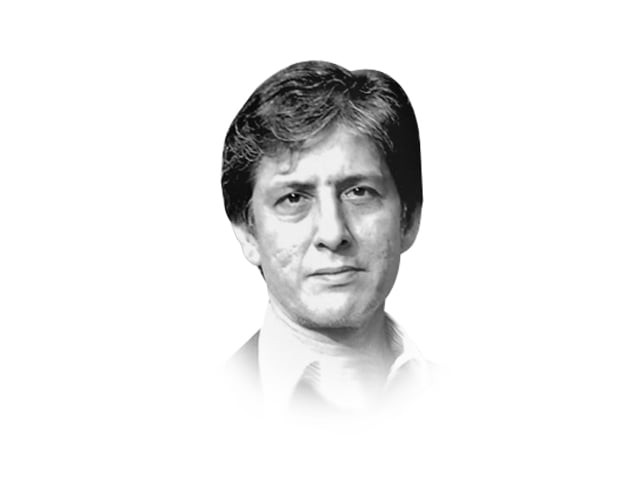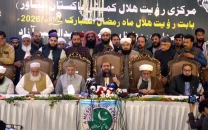Purging perjurers!
Those who represent the people must be held to a higher standard of probity and honesty than the people themselves.

The writer is Editor, National Security Affairs at Capital TV and a visiting fellow at SDPI
The issue here is the desire by the Supreme Court to ensure that the people’s representatives must be scrutinised closely and ruthlessly and disqualified if found to have perjured information. Reason: those who represent the people of Pakistan and legislate must be held to a higher standard of probity and honesty than the people themselves.
In and of itself, there is nothing wrong with this desire. One is unlikely to find a person who would, in theory, object to having honest, hardworking legislators represent him — or demand that he be represented by a rascal. Yet, in reality, one is not sure if a man imbued with the qualities of head and heart, assuming one could be found, would either be accepted for those traits by the political parties or be acceptable to the people themselves.
Let me put it differently. If the game in town belongs to the rascals, what chance would a man who plays by the rules, have? Not much, I am afraid.
The assumption here is that if the system works to the advantage of the rascal, the honourable judges, despite their good intentions, might mix up what J Frank in Courts on Trial called the “wishes” and the “is-es”.
People generally accept that children should be kept away from guns. As a straight proposition, it sounds good. But as Dr Benjamin Spock argued in Dr Spock’s Baby and Childcare, by denying toy guns to your child, you would be putting him in a difficult situation, especially if all his friends are going around totting guns.
The degrees of 54 of our honourable legislators have been found bogus. Another 189 have been given until April 5 to get their degrees verified from the Higher Education Commission. The issue has been hanging fire while the Election Commission of Pakistan continues to procrastinate. While the degree bar was lifted by the previous parliament, many of the worthies in parliament, given the degree condition in the 2008 elections, had just gone and acquired fake degrees. In the event, to use officialese, they now come under the mischief of articles 62/63 of the Constitution.
True to form, they have, at least privately, been agitating the issue and hold General-President Pervez Musharraf of the faded fame for hanging this shoe around their necks. The not-so-hidden assumption is that the legislators would not have been forced into perjuring if there were no such condition. In other words, working around a problem is what matters, perjury be damned.
At this stage, I realise, that my argument is coming dangerously close to a condemnation of these worthies. That I, too, am about to commit the mistake of “mixing up, ‘I wish this were so’ and ‘It is now so,’” and end up having “to face up to the fact that what [I] want does not now exist — and that it may be impossible to achieve” — at least in the short-term.
Even so, and this is the difficult part, how can I, or anyone, want rascals to represent me. Perjury constitutes obstruction of justice and leads to miscarriage of justice. A perjurer, often in some legal systems a felon, cannot be expected to make laws. Yet, we have to temper the desire to get rid of these characters with the reality of how much, and whether, that is possible.
This is where the problem becomes systemic, rising beyond individuals. Let’s assume that these perjurers are purged. Who will take their place? Either their scions and relatives or degree-holders that, to win the elections, will have to rely heavily on these very characters. Result: the nature of the system will remain unchanged.
There are, of course, several reasons for this and the corpus of theoretical and comparative literature on states and societies is increasing by the day. But one central issue has to deal with captured constituencies and the fact that all politics, in the end, is local and municipal.
Another factor is that the state doesn’t control all the resources in the sense of a large national chain. The people’s daily lives are about small, local chains, often self-sustained and self-perpetuating, which exist outside the workings of the state and very often are helpful in circumventing the state and its working.
In this sense, large parts of the country are ‘tribal’ and people need someone to negotiate with the outside world on their behalf. It helps if that someone belongs to a strong biradari and if his family or clan have been in the business of negotiating for the spoils, political and economic, for a long time. That people should realise that rotating representation will help them have a stronger voice and reduce the clout of entrenched families is an eminently sensible argument but fails to understand how social structures have evolved in certain areas.
This is, of course, the domain of sociologists and I make no claim to understanding the complexity of the issue; nor should this argument be treated as all-encompassing. There’s a multiplicity of factors and social scientists are notorious for arranging their facts and data according to their theoretical frameworks. But whatever the reasons for the system perpetuating itself, the way it is configured puts severe limitations on what can be done to move from “wish postulates” to “programmatic postulates”.
On the plus side, we are evolving — for sure. There is a greater desire, at least among the urban, educated voter to vote on the basis of issues. However, to what extent this can make a real difference is anybody’s guess, especially because this system has no office that is elected directly through countrywide voting and which could be a check on the working of a parliament that seems hopelessly mired in constituency politics.
So, yes, good luck to the monitors.
Published in The Express Tribune, April 3rd, 2013.



















COMMENTS
Comments are moderated and generally will be posted if they are on-topic and not abusive.
For more information, please see our Comments FAQ